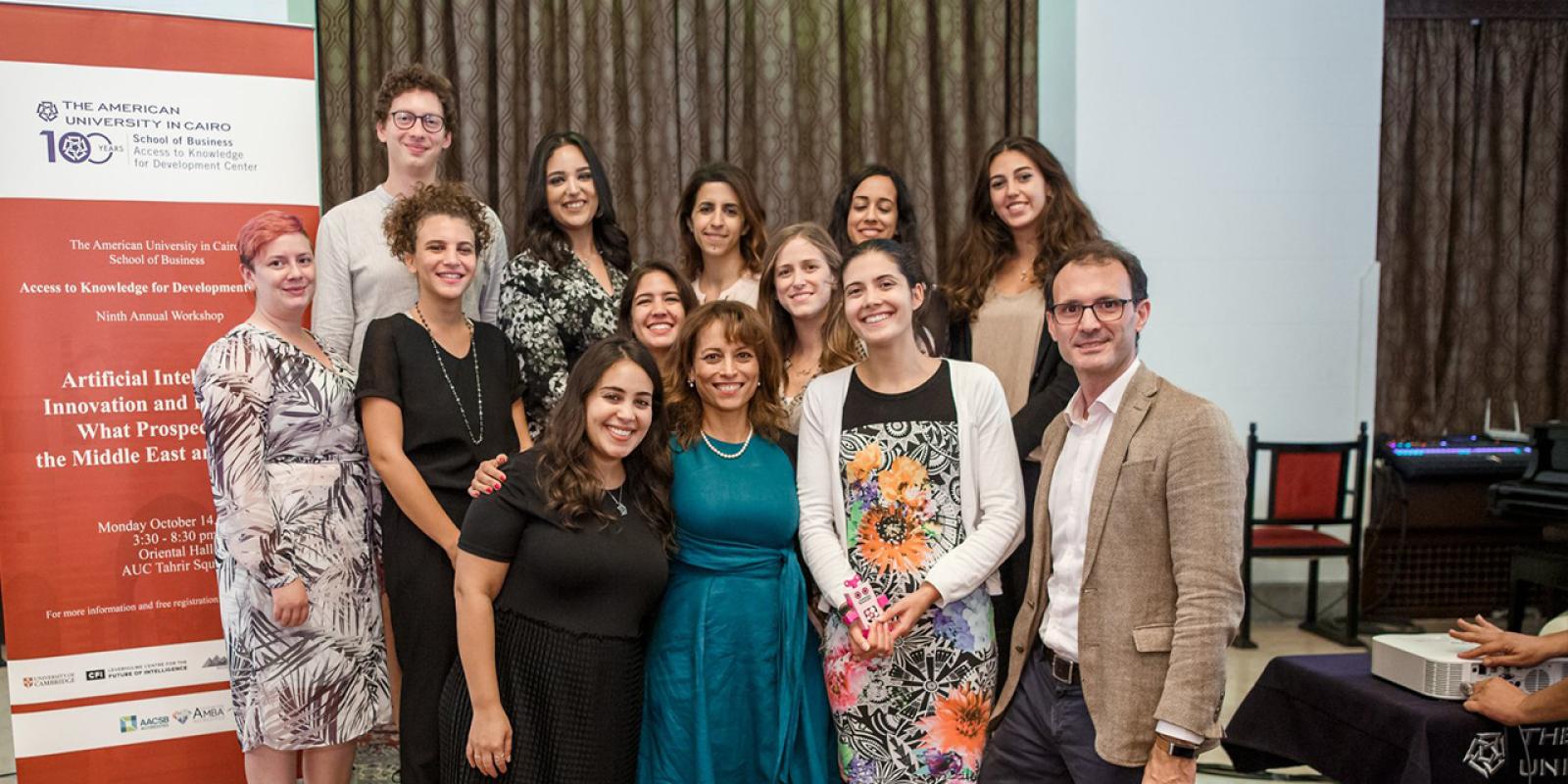
Artificial Intelligence, Innovation and Inclusion: What the A2K4D Ninth Annual Workshop Had To Say In This Regard
On October 14, the, Access to Knowledge for Development Center (A2K4D) held its ninth annual workshop gathering attendee representatives from academia, policymaking, civil society, and students. The day also witnessed the launch of the Alternative Innovation Measurement Lab (AIM).
The annual one-day workshop consisted of three sessions, which shared outputs of A2K4D's research in collaboration with their partners and within various networks. Furthermore, the workshop raised discussions on timely issues related to A2K4D’s research over the past year, where they continue to work towards bringing the voice of Egypt and the Middle East and North Africa (MENA) region to global debates on issues such as artificial intelligence and the Fourth Industrial Revolution, innovation, and inclusion-all from a developmental perspective.
The first session of the day discussed the heated topic of the Fourth Industrial Revolution, touching on artificial intelligence and inclusive development in the Middle East and Africa. The panel brought together colleagues from the Open African Innovation Research Partnership, at which A2K4D is the North African hub. This session examined the diversity of AI inequalities in the region, particularly with regards to income, digital access, and ethnicity, and emphasized the importance of focusing on such weak points and how AI can positively transform them, ensuring that AI has the potential to equalize as well as de-equalize. Tobias Schonwetter from the Center for Intellectual Property and Information Technology in Kenya also made it a point to emphasize that Africa acts as a data pool for any research done on artificial intelligence.
The proceeding session discussed the Global AI Narratives Project, MENA Edition. Speakers brought different perceptions and perspectives of AI narratives from the region and beyond. They compared between the historical and present impact of machine intelligence and its levels of sophistication, how developers can be economically efficient when developing new AI projects and how despite that many jobs may disappear due to machine intelligence, the human brain will always be required to add value tasks to a job. Nagla Rizk, founding director of A2KD, commented from the audience that a trap that many fall into is technological determinism: “Everyone has the misconception that upon acquiring technology, everything is fine and falls into place, they forget their role in managing such technology.” Yasser Bahjat, co-founder of Yatkhayaloon, gave a good metaphor when explaining why Arab Sci-fi is important for development, saying, “Imagine the world as a dark desert, and someone turns on a flash-light, everyone will go to the path they’ve illuminated. The more people turn on their flashlights the more we uncover from the desert, and the more paths there are to follow. It’s important to show our point of view.”
The day also witnessed the launch of the Alternative Innovation Measurement Lab (AIM), supported by AUC’s Centennial Lab Initiatives and the Office of the Associate Provost Alaa El-Din Adris. The lab aims to review current definitions of innovation as well as attempts and models of measuring innovation in different contexts in an attempt to better represent Egypt on Global Innovation indices such as the Global Innovation Index (GII) and the Global Competitiveness Index (GCI). The lab will present key works on innovation as well as review both the macro and micro indicators that attempt to measure it and argue that both approaches do not capture the full extent of innovation that is occurring in the contexts of the developing world, particularly Egypt in this case. The goal is to prepare a concrete framework that can be used in A2K4D’s own specific situational analyses of on-the-ground informal and formal practices of local Egyptian Innovators.
Rizk highlights: “The launch of the AIM Lab will enable us to produce research outputs that inform local policy-making as well as global scholarship on methodologies of measuring innovation that are more suited for the Global South, Egypt in this case, with parallel research being undertaken with our partners in Africa”. Therefore, the end result is outlining a way forward, with specific recommendations for further research, allowing A2K4D to implement their proposed measurement agenda.
To know more about the AIM Lab, visit this link
